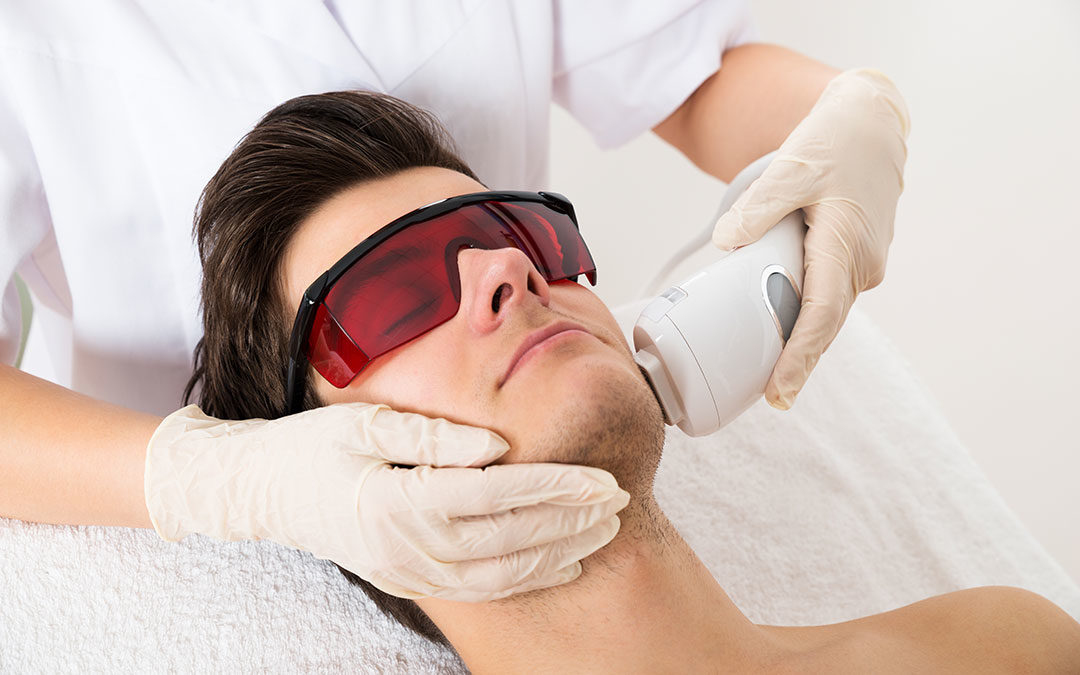
Are you considering laser hair removal for your pubic area but concerned about the potential side effect of darkening the skin? The quest for smooth, hair-free skin has led many to explore the world of laser treatments, but the fear of ending up with a darker bikini line or pubic region can be a major deterrent. In this article, we delve into the controversial question: Does laser hair removal make the pubic area darker? We’ll explore the science behind laser hair removal, examine common myths and misconceptions, and provide expert insights to help you make an informed decision about this widely debated topic.
Whether you’re a seasoned veteran of aesthetic procedures or a newcomer to the world of hair removal, understanding the potential impact of laser treatment on your most intimate areas is crucial. With conflicting information swirling around online forums and beauty blogs, it’s easy to feel overwhelmed and confused about whether laser hair removal is truly safe for maintaining a natural skin tone in sensitive regions.
If you’re considering laser hair removal in Gurgaon, be sure to research reputable providers and schedule a consultation to address any questions or uncertainties you may have about the procedure. Join us as we navigate through this hot-button issue and shed light on what you need to know before stepping into the world of pubic area laser hair removal.
The Impact of Laser Hair Removal on Pubic Area Pigmentation
Laser hair removal has been a game-changer for many individuals seeking long-term hair reduction in the pubic area. However, there has been concern regarding the potential impact on pigmentation in this sensitive area. Research suggests that hyperpigmentation and hypopigmentation may occur as a result of laser hair removal, particularly in individuals with darker skin tones. This is due to the melanin in the skin being targeted by the laser, which can sometimes lead to uneven pigmentation.
It’s important to note that advancements in laser technology and techniques have significantly minimized the risk of pigmentation changes in the pubic region. Skilled professionals now use specialized lasers that are less likely to affect surrounding skin pigmentation, leading to more consistent results. Additionally, post-treatment care and sun protection play a crucial role in minimizing any potential impact on pigmentation. Overall, while there may be some risk of temporary pigment changes with laser hair removal in the pubic area, careful consideration of treatment options and aftercare can help mitigate these concerns and lead to successful outcomes.
Understanding the Science
Understanding the science behind laser hair removal and its potential impact on the pigmentation of the pubic area requires a closer look at the body’s melanin production. Melanin is responsible for giving skin its color, and different individuals have varying levels of it in their skin. Laser hair removal targets the pigmented follicles, heating them and destroying them to inhibit future hair growth. However, this process can inadvertently affect nearby pigmented cells, potentially leading to changes in skin color.
Scientists have found that certain laser wavelengths and energies can trigger an inflammatory response in melanocytes, which are specialized cells that produce melanin. This could lead to hyperpigmentation or hypopigmentation in treated areas. Additionally, individual factors such as skin type, hormone levels, and previous sun exposure play a role in determining how the skin responds to laser treatment. It’s important for individuals considering laser hair removal for their pubic area to consult with a qualified dermatologist or specialist who understands these nuances and can provide personalized insights based on scientific knowledge.
Addressing Common Misconceptions
One of the most common misconceptions surrounding laser hair removal is the idea that it can make the pubic area darker. This misconception stems from a lack of understanding about how laser hair removal actually works. In reality, laser hair removal does not cause darkening of the skin in the treated area. The process targets melanin in the hair follicle, not the skin itself, and does not affect pigmentation.
Another misconception is that laser treatment is only suitable for certain skin types and may lead to discoloration. However, advancements in technology have made laser hair removal accessible and effective for a wide range of skin tones, when performed by trained professionals using appropriate equipment for various skin types. It’s important to consult with a qualified practitioner who can determine whether you are a suitable candidate for laser hair removal based on your individual skin characteristics, rather than relying on outdated information or generalizations about its effects on different skin tones.
In conclusion, addressing these misconceptions about laser hair removal can help people make informed decisions about their grooming choices. By dispelling myths and providing accurate information about this popular procedure, individuals can feel more confident in exploring options like laser hair removal without unnecessary concerns about potential side effects such as darkening of the pubic area.
Exploring Potential Factors
Exploring potential factors in the phenomenon of darkening after laser hair removal in the pubic area brings to light an array of intriguing possibilities. While some may attribute this effect solely to the procedure itself, a deeper exploration reveals a complex interplay of skin type, hormonal changes, and individual responses to treatment. Recent studies suggest that melanin production, influenced by both genetic and environmental factors, could play a significant role in the post-treatment darkening.
Furthermore, the level of expertise and technology used by practitioners may also impact outcomes. Emerging research indicates that individuals with darker skin tones may be more prone to pigmentary changes after laser hair removal due to increased melanin content in their skin—shedding light on how diversity within patient populations can shape treatment results. Delving into these potential factors not only encourages a nuanced understanding of this issue but also underscores the need for personalized approaches in cosmetic procedures like laser hair removal.
Professional Insights and Recommendations
Professional Insights and Recommendations
When it comes to laser hair removal in the pubic area, seeking professional insights and recommendations is crucial. Dermatologists and licensed laser technicians are well-versed in the latest techniques and can provide personalized recommendations based on skin type, hair color, and other individual factors. It’s important to consult with a qualified professional before undergoing any laser treatment, as they can assess potential risks and benefits specific to your situation.
Furthermore, professionals can offer valuable post-treatment care advice to minimize potential side effects such as skin discoloration. Utilizing gentle skincare products recommended by experts can help maintain the health of the treated area and reduce the risk of darkening. Ultimately, relying on professional insights and recommendations throughout the process ensures a safer, more effective experience for those considering laser hair removal in the pubic area.
Conclusion: Debunking Myths, Embracing Facts
In conclusion, it’s important to debunk the myth that laser hair removal makes the pubic area darker. Many people believe this misinformation, but the truth is that laser treatments do not cause skin discoloration when performed by a skilled professional using FDA-approved devices. In fact, the process targets the hair follicles and does not affect the surrounding skin pigment. It’s crucial to embrace this fact and seek out reputable clinics with experienced technicians to ensure a safe and effective treatment.
It’s time to dismiss unfounded fears and focus on factual information regarding laser hair removal. Embracing the science behind this popular cosmetic procedure can empower individuals to make informed decisions about their bodies. By understanding the reality of how laser treatments work, people can confidently pursue smooth, hair-free skin in their pubic area without worrying about darkening effects. Let’s move past myths and instead rely on accurate knowledge to guide our beauty routines and choices.
Also Read: Top 5 Best Hologram Fans of 2024





